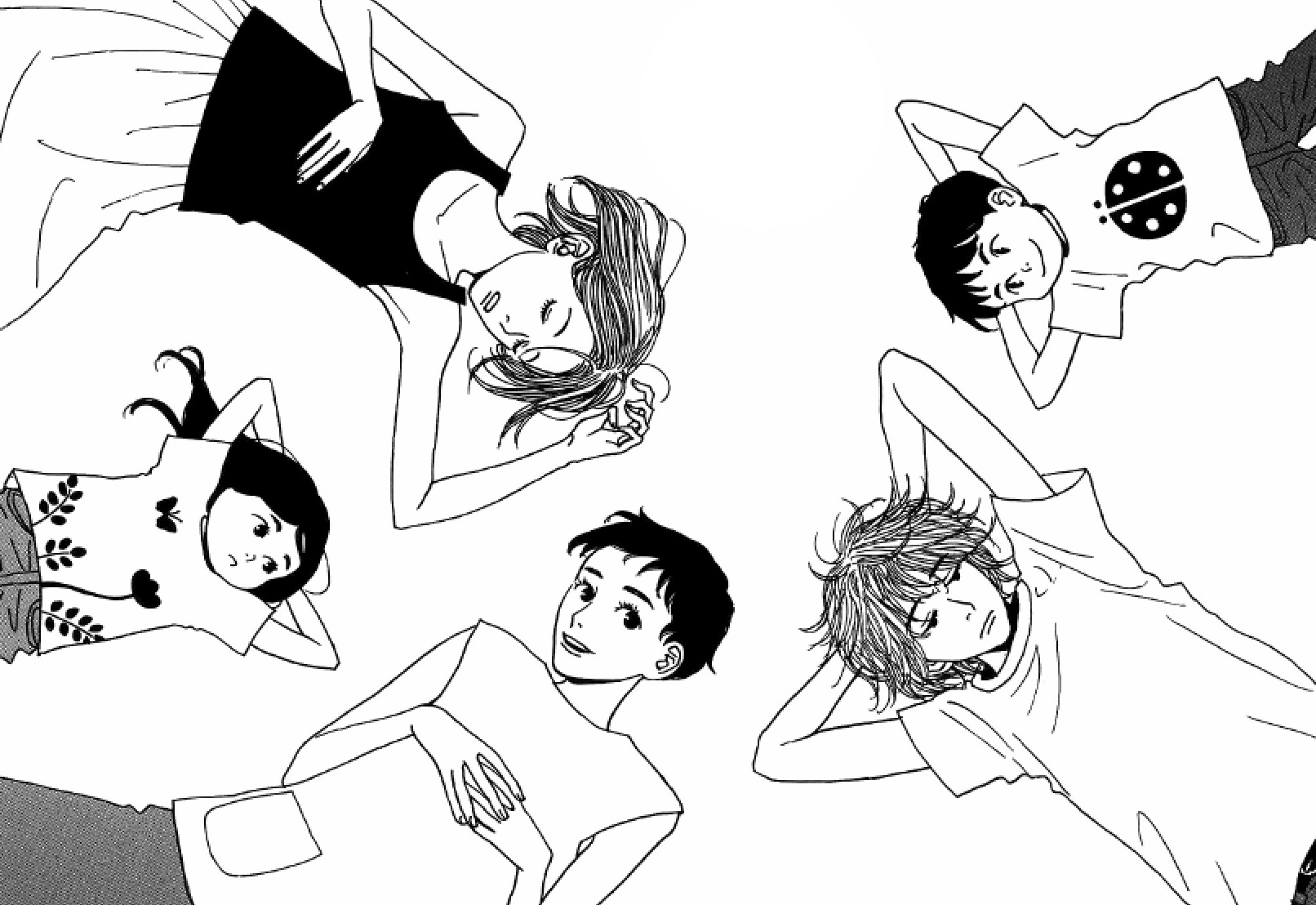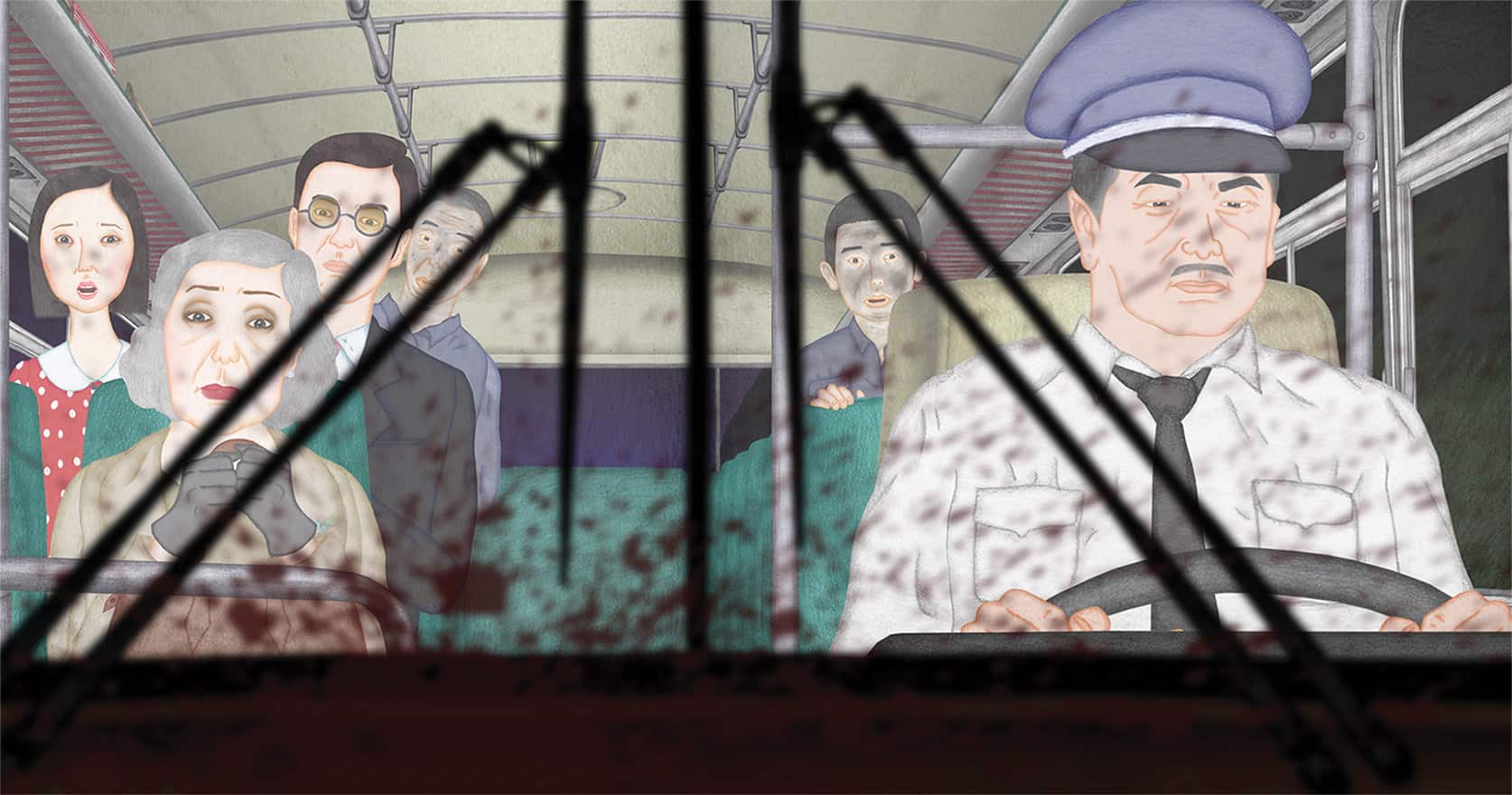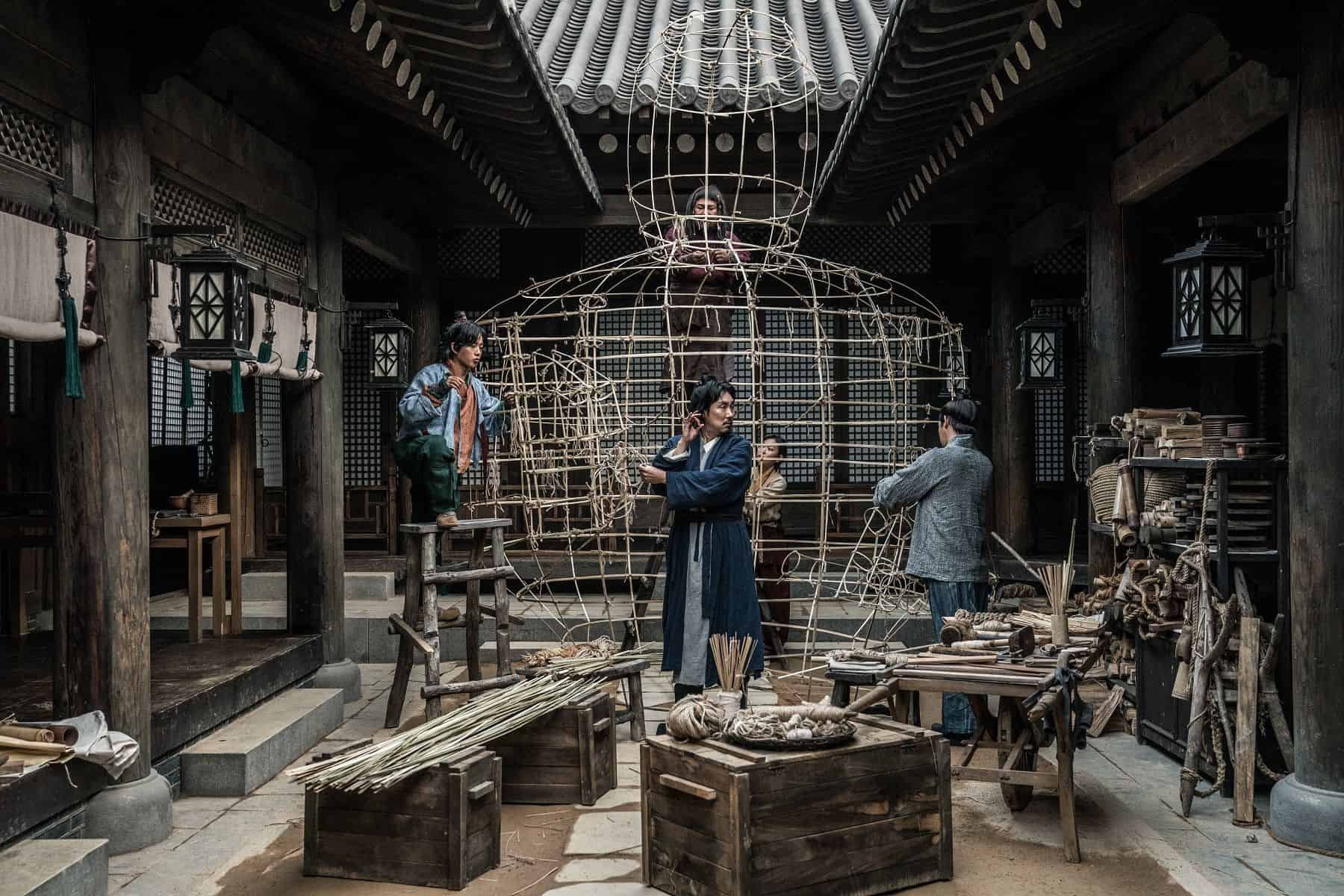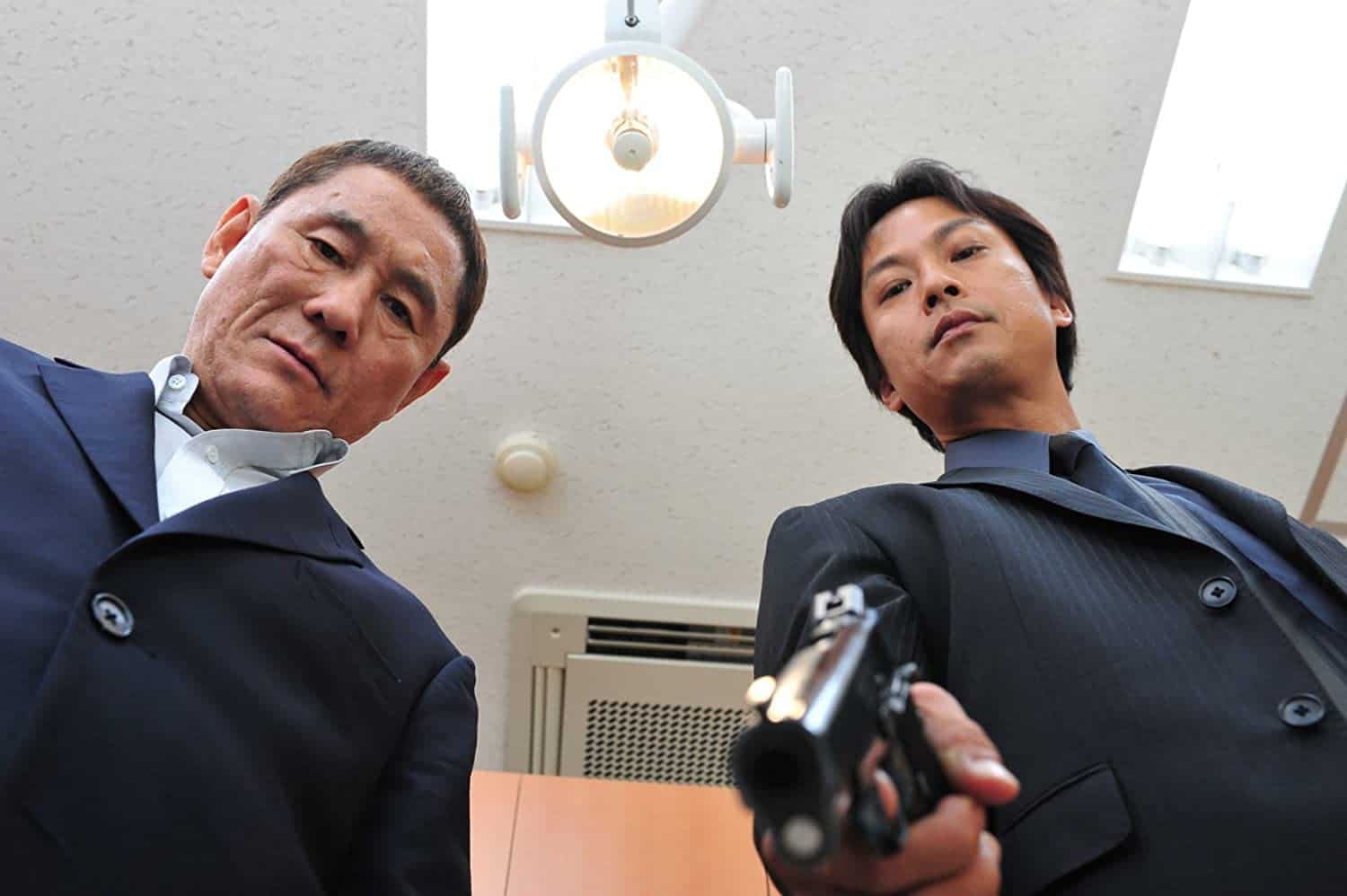In his late works, Nobuhiko Obayashi became a very keen and critical observer of his home country, its society and politics, posing the question whether they had actually learned anything from the past. “Casting Blossoms to the Sky” is the first movie in what is now considered a trilogy of anti-war features, with “Seven Weeks” (2014) and “Hanagatami” (2017) being the other parts. Following his visual and narrative approach of combining layers of dream, reality and time, Obayashi focuses on several incidents and experiences of a woman traveling to Nagaoka, a city famous for its fireworks tradition, but also a place which may hold the key in understanding the present as well as the possible future of Japan.
“Seven Weeks” OPENS JAPAN SOCIETY, NY and Nationwide VIRTUAL CINEMAS and THEATERS, July 9, courtesy of Kimstim Films
As a newspaper journalist, Reiko Endo (Yasuko Matsuyuki) has always been interested in the history of places, such as Nagaoka. After the earthquake and tsunami of 2011, the city accepted many people from the Tohuko region, helped them and offered food as well as shelter. Apart from finding out more about this act of kindness, she also wants to meet her ex-boyfriend Kenichi (Masahiro Takashima), a high-school teacher who has agreed to help one of his students, Hana Motoki (Minami Inomata), to get her play about the bombing of the city in World War II on stage. It is a collection of voices, as Hana explains, representing the various experiences and stories of the people who survived the event.
Upon her arrival, Reiko meets several of the locals, for example, cab driver Akiyoshi Muraoka (Takashi Sasano), who tells her about the bombing of the city and the atomic bombs the US dropped on Japan. Her encounter with Wakako Inoue (Natsuki Harada) gives her some insight into the history of the city, especially its fireworks tradition, and how it coincides with the architecture of atomic bombs.
As with many of the director's late works, “Casting Blossoms to the Sky” consists of various characters and episodes, whose connections are unveiled perhaps even better upon a second viewing of the film. Essentially, the narrative structure seems to follow the logic of a novel in some parts, given the division in chapters and how it is told in retrospect, but at the same, the various flashbacks and surreal elements stand out within that approach. The collection of voices, stories and experiences, which is essentially the idea behind the play Kenichi wants to put on stage, is perhaps the best way to describe “Casting Blossoms to the Sky”. In the end, these re-tellings of the brutality, the hunger and the grim details of the war add a dark layer to the feature, one which seems to be in contrast with the vivid images at times.
Although the tone of the features is often quite dark and depressing, it is Obayashi's vision of a possible future, a utopia if you will, which brightens up the narrative. The various symbolic layers of the story, first and foremost, the link between atomic bombs and fireworks, highlights the connection of war and rebirth. In meticulous detail, the viewer is told about the working of the bombs and a firework, how their structure decides their impact. As with the events the movie describes, the bombing and the aftermath of the earthquake, destruction and rebirth are not only connected, but offer a chance for re-invention, which is exactly where the nation should be heading.
In the end, “Casting Blossoms to the Sky” is an episodic feature about Japan's past, present and its possible future. Nobuhiko Obayashi is a critical observer of his home country, how it deals with its past and what it has learned from it, while showing the enormous hardships of people, along with the kind of support they are willing to offer in times of war, showing how that might be the hope for the future, or perhaps even the foundation for a new Japan.















